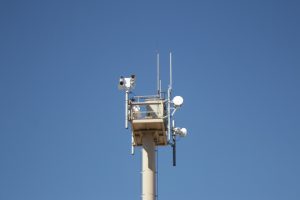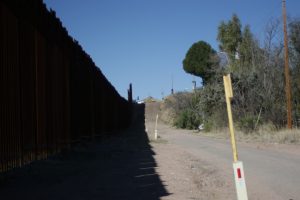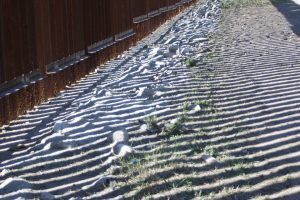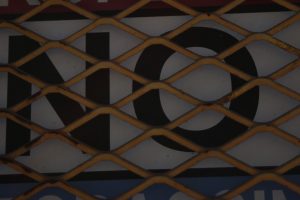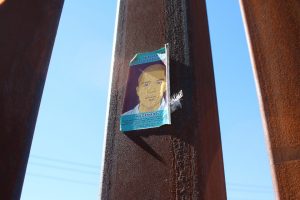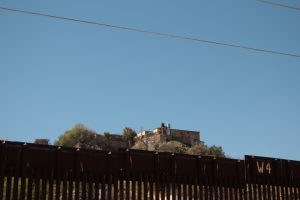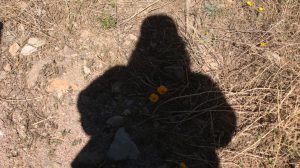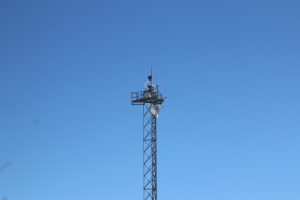A reflection by Angie Bustos and Dannise Matarlo:
“There is no such thing as a single-issue struggle because we do not live single-issue lives” -Audrey Lorde
Today, was really about learning how to transition from being bystanders to begin standing in solidarity with people marginalized by the immigration system of the United States. As we begin to wrap up our learning experience here in Tucson, Arizona we begin to question, what now? We started to embark on different ideas that address this social issue of immigration. When we began this transition we found it very difficult to find a way in which we can have a realistic approach to reforming the current standing of immigration. As conversations continued within the community we have built during our time here, we brought to attention the importance of education and advocacy.
Keeping our conversation of education and advocacy in mind, we defined key ideas that are important to understand and continuing our conversation outside our immersion community to the university and Portland community. As our experiences here in Tuscon begin to conclude, our journey and more importantly our dialogue about this immigration issue is only beginning. With that in mind it is urged that the issue of immigration continues to be seen as an issue and NOT simply a topic of discussion.
Another important aspect that arose from our action planning was the struggle to have the ability to continue being committed to the lifelong issue of immigration. It is understood that tackling social issues like immigration can be discouraging since many times results are not tangible. The lack of visible policy changes can be frustrating and cause people to burn out. Understanding these different aspects it is important to be reminded why one decided to commit to this issue and focusing on the positives that can be found in the darkness.
One particular story that struck our minds was from Deborah with the Tuscon Water Protectors. She had been an advocate in many immigration solidarity projects and there was a point where she found herself question whether her actions were really making a difference. This really resonated with us since we are only beginning our journey. One of her positions of solidarity, she answered phone calls in a 24/7 Hotline center, she recalled a phone call in which a man was lost in the desert but he was still in Mexico. She told us she was able to find this man rescuers and how moments like these, where a person lives, makes all the handwork worth it.
With stories like Deborah’s and conversations of immigration fueling our thoughts, we have come to the decision that social issues like immigration and others are intersectional. Their ability to interconnect is due to the lack of recognition of basic human rights that accompanies different social issues. With this in mind it is important to address our society’s understanding of human rights. Additionally, we must also keep in mind that there is more than one perspective to all social issues and to keep that in the back of our minds as we begin educating our communities and advocating for those the marginalized.
Itinerary:
Thursday, March 16th
8:30am: Walk to Southside Presbyterian
9:00am: Meeting about Sanctuary Movement with at Southside Presbyterian
12:00pm: Lunch at Borderlinks
1:00pm: Meeting with Florence Project in Tucson
2:30pm: Meeting with Josue
4:00pm: Action Planning Journal Prompt
6:00pm: Dinner with Chukson Water Protectors
***Pack. Fill Out Simple Evaluation. Be ready to walk out the door in the morning
Southside Presbyterian is rooted in the sanctuary movement of the 1980’s and is a leader in the new current sanctuary movement. It started as a mission to the Tohono O’odham people. In the 1980s the congregation became one of the key churches in the Sanctuary Movement, helping refugees fleeing terror in El Salvador and Guatemala. The Southside congregation continues to work with immigrant community members around human right, poverty and food justice.
Florence Project is a nonprofit legal service organization that provides free legal services to men, women and children detained by the Immigration and Customs Enforcement (ICE), formerly known as the INS. Although the government assists indigent criminal defendants and civil litigants through public defenders and legal aid attorneys, it does not provide attorneys for people facing deportation charges. As a result, 90 percent of the detained people go unrepresented due to poverty. The Florence Project strives to address this inequity both locally and nationally.
Josue is a community leader who, among his many organizing roles, has worked on the topic of healthcare and undocumented immigration.
